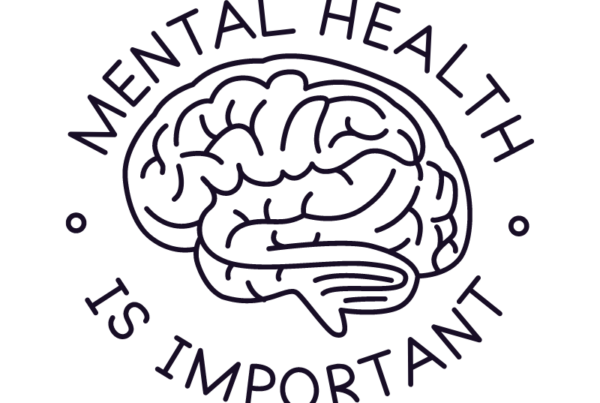In a world increasingly dependent on digital tools to remember things, the ancient art of memory training offers a powerful alternative.
Enter memory expert Anthony Metivier, who teaches people to develop extraordinary recall abilities using personalized techniques that make learning more interesting and engaging.
The Essence of Memory Training
According to Metivier, memory training goes beyond learning mnemonic tricks to remember lists. It represents a deep engagement with how our minds process and store information. While many view memory techniques as skills to be learned and deployed, Metivier suggests a different perspective.
Memory techniques are similar to physical exercise. Just as muscles need consistent training to grow stronger, our memory abilities develop through regular practice and pushing beyond comfortable limits.
Memory training goes beyond basic techniques:
- Historical Context: Renaissance scholars used memory training, not just for recall but as a creative mental faculty.
- Progressive Development: Memory skills have shallow, intermediate, and advanced levels, each offering different capabilities and benefits.
- Personalization Factor: The best memory techniques leverage what’s already in your mind rather than imposing strict external systems.
Fundamental Memory Mechanics
Traditional memory training starts with learning pre-established association systems. However, Metivier advocates for a more natural approach that builds on existing knowledge instead of requiring memorization of new frameworks.
This perspective aligns with ancient memory traditions that emphasized using what’s familiar. Metivier suggests leveraging alphabetical thinking and personal associations already established in your mind instead of memorizing arbitrary lists of pegs or hooks.
- Alphabetical Thinking: Using the first letters of words to connect to people, places, or things.
- Personal Connections: Minimizing cognitive load by drawing on existing knowledge rather than creating new associations.
- Renaissance Approach: The ancient “art of combination” focused on linking new information to established knowledge.
The Memory Palace Technique
The memory palace (or method of loci), the most powerful memory technique, leverages our brain’s ability to remember spatial information. This technique involves placing information along a mental journey through a familiar location.
Metivier asks, “How much work did you put into remembering your last house layout?” Your brain melts space into long-term memory. We can use that to remember virtually anything.
- Spatial Navigation: The brain remembers physical spaces, providing a reliable framework for storing information.
- Strategic Placement: Starting at the “dead end” of a location allows for memory journey expansion.
- Micro-Stations: Each room or location can store multiple information pieces, enhancing memory palace efficiency.
Personalization: The Key to Memory Success
Metivier’s approach differs from other memory teachers due to his emphasis on personalization. He views memory techniques as adaptable methods to fit each person’s unique mind, rather than presenting them as rigid systems.
This personalization makes memory techniques more accessible and effective. It is easier to recall information connects to your existing knowledge and interests.
- Individual Adaptation: The most effective memory techniques are tailored to your thought patterns and existing knowledge.
- Method vs. System: Viewing memory techniques as methods rather than systems allows for greater flexibility and personal significance.
- Existing Knowledge: Using what you know eliminates the need to create new associations, making the process faster and more intuitive.
Advanced Memory Applications
Memory techniques can tackle any learning challenge, from remembering names at social gatherings to mastering complex professional knowledge. Legal professionals, students, language learners, and anyone seeking to enhance their mental capabilities can benefit.
Metivier identifies five core mnemonic systems that provide the foundation for remembering anything when mastered:
- Memory Palace system
- Alphabetical image system
- Numerical image systems
- Symbol systems, and
- Recall rehearsal (spaced repetition)
Lawyers use these techniques to remember case details, juror information, and legal precedents accurately. They can also be used for learning foreign languages.
And perhaps the most practical common use case is for remembering names and faces to improve networking and social interactions.
Cognitive Benefits Beyond Memory
Memory training benefits extend beyond recalling information. Regular practice of memory techniques contributes to overall cognitive health and mental agility, potentially safeguarding against age-related cognitive decline.
There’s a thing called cognitive reserve. Research shows that the more cognitive reserve you have, even if you develop dementia or Alzheimer’s, you can have those brain problems and limited or no symptoms.
- Cognitive Reserve: Memory training builds mental resilience that may protect against neurodegenerative conditions.
- Mental Agility: Regular practice keeps the mind sharp and responsive into older age.
- Attention Training: Memory techniques require focused attention. In our distraction-filled world, developing this unique skill is essential.
Getting Started with Memory Training
Starting your memory training journey doesn’t require special talents or abilities. Anyone can learn these techniques with proper guidance and practice. The key is to start with simple applications and gradually increase complexity as your skills develop.
Metivier emphasizes that memory techniques must be actively used to be effective. Even memory champions don’t naturally remember everything; they intentionally apply techniques for important information.
- Start Simple: Use basic memory palaces in familiar locations such as your home.
- Consistent Practice: Regular application of techniques builds procedural memory, making the process effortless.
- Personalized Approach: Experiment with different techniques to find what suits your mind best.
The Bottom Line
In a world where we outsource our memory to digital devices, developing your natural memory capabilities provides a huge advantage and better life experience (just like using mental models).
In short, memory training is a valuable investment. And Anthony Metivier’s online training program is a great way to make that investment.
Use technology to radically improve your law practice by focusing on the few core elements that have the biggest impact.






